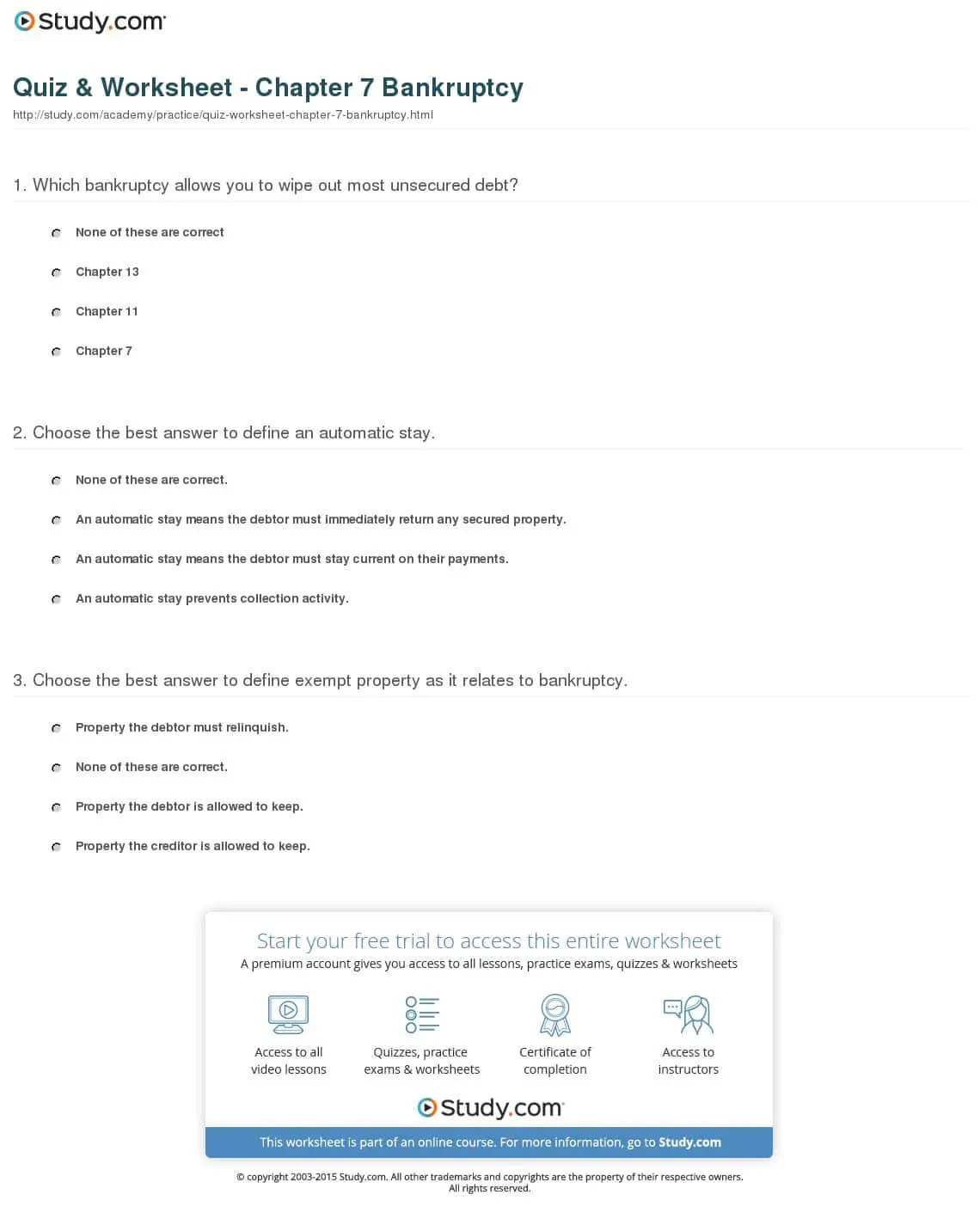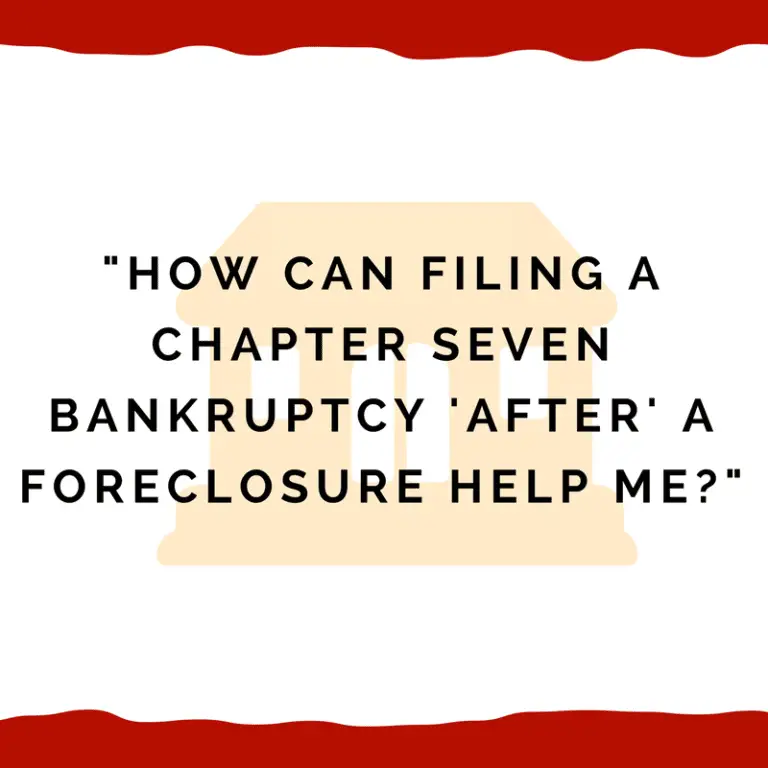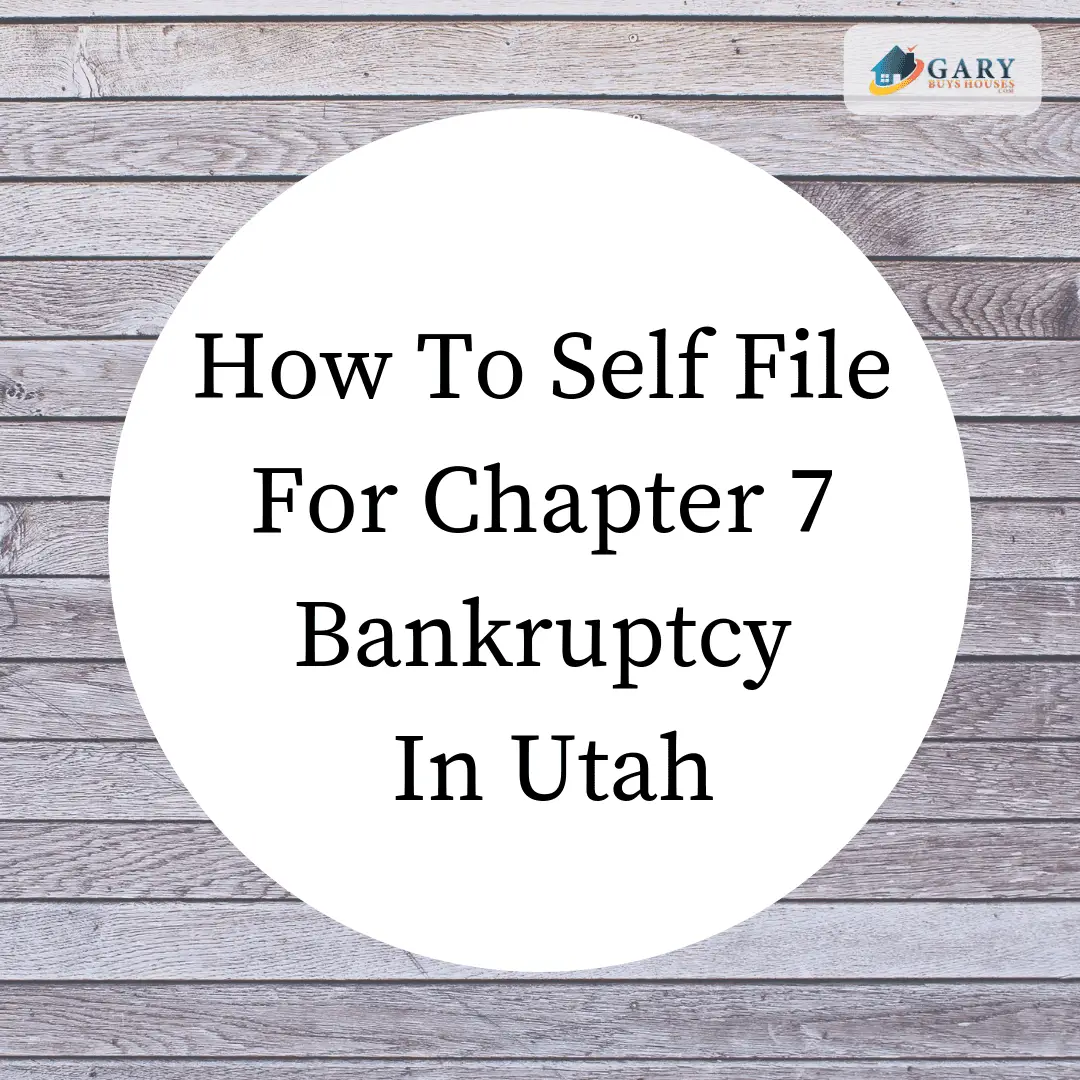Alternatives To Chapter 7
Debtors should be aware that there are several alternatives to chapter 7 relief. For example, debtors who are engaged in business, including corporations, partnerships, and sole proprietorships, may prefer to remain in business and avoid liquidation. Such debtors should consider filing a petition under chapter 11 of the Bankruptcy Code. Under chapter 11, the debtor may seek an adjustment of debts, either by reducing the debt or by extending the time for repayment, or may seek a more comprehensive reorganization. Sole proprietorships may also be eligible for relief under chapter 13 of the Bankruptcy Code.
In addition, individual debtors who have regular income may seek an adjustment of debts under chapter 13 of the Bankruptcy Code. A particular advantage of chapter 13 is that it provides individual debtors with an opportunity to save their homes from foreclosure by allowing them to “catch up” past due payments through a payment plan. Moreover, the court may dismiss a chapter 7 case filed by an individual whose debts are primarily consumer rather than business debts if the court finds that the granting of relief would be an abuse of chapter 7. 11 U.S.C. § 707.
Debtors should also be aware that out-of-court agreements with creditors or debt counseling services may provide an alternative to a bankruptcy filing.
Can The Discharge Be Revoked
The court may revoke a discharge under certain circumstances. For example, a trustee, creditor, or the U.S. trustee may request that the court revoke the debtor’s discharge in a chapter 7 case based on allegations that the debtor: obtained the discharge fraudulently failed to disclose the fact that he or she acquired or became entitled to acquire property that would constitute property of the bankruptcy estate committed one of several acts of impropriety described in section 727 of the Bankruptcy Code or failed to explain any misstatements discovered in an audit of the case or fails to provide documents or information requested in an audit of the case. Typically, a request to revoke the debtor’s discharge must be filed within one year of the discharge or, in some cases, before the date that the case is closed. The court will decide whether such allegations are true and, if so, whether to revoke the discharge.
In chapter 11, 12, and 13 cases, if confirmation of a plan or the discharge is obtained through fraud, the court can revoke the order of confirmation or discharge.
Drawbacks Of Chapter 7 Bankruptcy
Before you decide to file, there are several drawbacks of Chapter 7 bankruptcy to be aware of.
- You may have liens placed against your property. A lien gives your lender a stake in your property. If the property is sold, the lender can be paid from the earnings.
- You may lose property. Your property may be sold in order to pay creditors.
- Your credit may be damaged. Derogatory public records, including bankruptcies and foreclosures, included in your credit reports have the potential to reflect poorly on your credit and can hurt your ability to qualify for new loans.
Also Check: When You File Bankruptcy Who Pays The Debt
What Can Happen To Your Property
In most cases, the property of the debtor cant be used to raise money for the creditors because its considered nonexempt property. Thus, if you are a debtor, you dont necessarily have to lose your property, but it may happen sometimes.
Once the meeting of creditors finishes, the trustee might say you have nonexempt property. If that occurs, you may have to surrender and give it to the trustee or provide them with the equivalent in cash.
Sometimes, the property may not be worth a lot. In those circumstances, the trustee might abandon it and you could keep it.
Bankruptcy Debt Repayment And Discharge

When a company is being liquidated in a chapter 7 bankruptcy, there is an order of priority in which debts are paid off. The assets are liquidated and the funds are used to repay the debt according to that priority. If there are assets remaining once debts are repaid, they can be distributed to shareholders, but if debts are greater than available assets, shareholders may get nothing at all.
You May Like: How Long Do Chapter 7 Bankruptcies Stay On Credit Report
What Is Automatic Stay
You have to keep in mind several things before filing. Chapter 7 bankruptcy can be very beneficial, but by far, one of the best parts of qualifying for it is the automatic stay effect.
When you qualify for Chapter 7 bankruptcy, it puts into action something called the automatic stay. In other words, creditors cannot take hold of your possessions right away.
Chapter 7 bankruptcy offers you a fresh start because it helps you manage a vast majority of debts you may have. Even though the bankruptcy filing process can be complicated, credit counseling can be very interesting, and it might help you learn things you didnt know before.
With the automatic stay effect, creditors cant access your possessions, at least temporarily. Thus, you dont have to worry about them going for your bank account, properties, car, or anything else.
Chapter 7 Bankruptcy Is A Legal Process That Can Help Individuals Get Relief From Debts By Discharging Or Clearing Some Or All Of Whats Owed
If you qualify, Chapter 7 bankruptcy may allow you to discharge a variety of debts, but typically excludes obligations like child support, student loans or tax debt.
The main benefit of filing for Chapter 7 bankruptcy is that it can give the honest debtor a fresh start, says bankruptcy attorney Richard Symmes, principal attorney at Symmes Law Group.
But it isnt a simple fix-all. The repercussions of filing Chapter 7 bankruptcy can include losing some of your physical assets and having your credit take a major hit.
Chapter 7 bankruptcy may be able to offer the financial reset you need, but you should know about the drawbacks before you consider filing.
Also Check: What Is A Good Bankruptcy Score
How Long Does Filing A Chapter 7 Bankruptcy Take
Generally, the entire Chapter 7 process from the initial credit counseling to the point when the court discharges your remaining debts takes about four to six months.
Your case could take longer, however, such as when the trustee asks you to submit additional documents or if they have to sell your property to repay creditors. Or, perhaps you want to try to get your student loans discharged in bankruptcy. It’s possible, but difficult, and can require a lengthy trial.
Does A Chapter 7 Remove Negative Items From My Credit Report
Yes! One of the best parts about Chapter 7 bankruptcy is that negative items are removed from your credit report. This allows you to build credit quickly after bankruptcy. Weve discussed this in our article what does bankruptcy do to my credit? Many times, your credit report begins to show these items as removed within a month or two of filing bankruptcy. This causes many of our clients to see their credit score go up as much as 50 points after filing a bankruptcy!
You May Like: How To Get A Credit Card After Filing Bankruptcy
How Can A Debtor Get A New Trustee
The trustee in a New York bankruptcy case is usually not the debtors ally. His or her purpose is mainly to administer the bankruptcy estate or ensure the debtors repayment plan goes according to plan. Trustees pursue preference payments, fraudulent conveyances, and other malfeasance committed by debtors. They frequently initiate adversary proceedings against debtors. In
What You Must Avoid Before Filing Chapter 7 Bankruptcy
Theres some protocol to follow in the months before filing for bankruptcy. Failing to follow these instructions could undermine your efforts. Heres what not to do in the run-up to filing Chapter 7.
Dont Pay Creditors Sounds weird, right? Hear us out. To the extent you can, continue to make routine payments. But any large or unusual payments could be viewed as preferential transfers. That means one creditor has benefited unfairly over others.
No New Debt A new creditor could claim you took out a loan or ran up the balance on a credit card without intending to pay it back. Legally, thats fraud and it will not be forgiven.
No Unusual Transactions Dont stray from the routine. Dont transfer titles of cars or homes. Dont buy luxury goods. Dont transfer your business or remove your name from it. Each of these activities can be classified as fraud.
Be Truthful and Complete You are required, while filing for bankruptcy, to provide full and complete information. You must disclose any debt, assets, accounts or other financial information.
It is important not to destroy any financial documents or records related to the filer’s debt, Sinha says. The court will look at a filer’s recent financial transactions to determine if they were made with the intent to fraudulently avoid paying their debts.
Adds Solomon, People use many wrong tricks to hide their assets before filing for bankruptcy, but they don’t know all these tricks can be caught easily by the trustee.
Don’t Miss: Liquidation Pallets New York
Bankruptcy Attorney Serving Twin Cities
While it is not something that happens often, it is possible for your Chapter 7 bankruptcy case to be dismissed by the court. What a bankruptcy dismissal means is that you do not qualify for the bankruptcy process and thus the filing is dropped. While this sounds particularly scary, if bankruptcy is your last option, it is unlikely to happen to you. Yet, it is best to understand why it might happen and what your options are. Usually a chapter 7 bankruptcy is dismissed if the client didnt tell the lawyer that they owned something valuable, like a car, house or business. Walker & Walker works with you to make sure we have everything. In my experience, most people have nothing to hide because bankruptcy laws are actually quite generous on what you can keep in bankruptcy.
Oklahoma Bankruptcy Exemption Laws

An essential part of the bankruptcy process, exemption laws are a set of federal and state laws that determine what property you can keep and what the trustee can sell. The property that the trustee may sell is known as non-exempt property. Adversely, property classified as exempt cannot be sold to satisfy your debts. If the property is exempt, the trustee will not be able to sell the property up to a specified amount.
Don’t Miss: Are Personal Bankruptcies Public Record
What Do You Lose And What Can You Keep In Chapter 7 Bankruptcy
If you file for Chapter 7 bankruptcy, you may lose your nonexempt belongings, property that has a lien on it and property you offered as collateral for a loan.
Examples of exempt property based on current federal limits for an individual include:
- A homestead exemption of $25,150
- Up to $4,000 on a vehicle
- Up to $1,700 in jewelry
- Up to $13,400 in personal property, such as books, household items, and clothes
- Funds in tax-exempt retirement accounts, such as a 401 or 403 accounts, and up to $1,362,800 in combined savings in IRAs and Roth IRAs
- Public benefits, such as Social Security, veterans benefits and unemployment
- Up to $2,525 in books and tools of trade
- Alimony and child support
- Certain insurance benefits
- An additional $1,325 in property of your choice, plus up to $12,575 of unused funds from your homestead exemption
Double these amounts if you’re married and file a joint tax return. Keep in mind that states may have different exemptions and limits that you can use when filing bankruptcy. For example, the homestead exemption for a single homeowner living in California starts at $75,000, but is unlimited in some other states.
A trustee can’t take property when its value is less than the exempt amount, which means you may be able to keep your home and vehicle.
A similar scenario could play out with other forms of secured debts, such as an auto loan. However, just because the trustee can’t take and sell these assets doesn’t mean you’ll get to keep them in the long run.
Overview Of Bankruptcy Chapters
The Bankruptcy Code appears in title 11 of the United States Code, beginning at 11 U.S.C. 101. Its principal chapters are briefly outlined below:
Chapter 7 bankruptcy is a liquidation proceeding available to consumers and businesses. Those assets of a debtor that are not exempt from creditors are collected and liquidated , and the proceeds are distributed to creditors. A consumer debtor receives a complete discharge from debt under Chapter 7, except for certain debts that are prohibited from discharge by the Bankruptcy Code.
Chapter 11 bankruptcy provides a procedure by which an individual or a business can reorganize its debts while continuing to operate. The vast majority of Chapter 11 cases are filed by businesses. The debtor, often with participation from creditors, creates a plan of reorganization under which to repay part or all of its debts.
Don’t Miss: Can Just One Spouse File Bankruptcy
Benefits Of Filing For Chapter 13 Bankruptcy
If you are in a position to take advantage of chapter 13 and you can afford to wait through a longer bankruptcy process, you may want to consider several of its benefits, including:
- Less impact to your credit score, compared to chapter 7
- No liquidation of your assets
- A stop to the foreclosure process, if you are a homeowner who is behind on your mortgage
our Florida Attorneys today
Deferring Control Of Your Finances
When you file for bankruptcy you are technically leaving your personal finances in the hands of the bankruptcy court. The court manages your finances through the agency of a trustee. The function of the trustee is to see that creditors with claims against you are paid as much as they possibly can be. While the trustee is technically a neutral party, they also get paid a portion of whatever assets they can find of yours to liquidate.
Read Also: Epiq Corporate Restructuring Llc Letter
Don’t Miss: Fannie Mae Bankruptcy Chapter 7
Overview: What Is Bankruptcy
Bankruptcy is a legal process for individuals or companies that are unable to pay their outstanding debts. You can go bankrupt in one of two main ways. The more common route is to voluntarily file for bankruptcy. The second way is for creditors to ask the court to order a bankruptcy.
If you decide to file for bankruptcy yourself, there are several ways to do so. You may want to consult a lawyer before proceeding so you can figure out the best fit for your circumstances.
Filing For Chapter 7 Bankruptcy
If youve given all youve got to those alternatives and youre still drowning in debt, know this: You arent a bad person if you have to file for bankruptcy. Good people get in tough situations. And youll get through this.
Heres how to file for Chapter 7 bankruptcy:
You May Like: How Many Times Did Trump Declare Bankruptcy
How To Get A Debt Discharge
Filing for bankruptcy is not an easy decision to make, but sometimes it’s necessary. You can start the process by asking an attorney what property is excluded in a Chapter 7 bankruptcy, and what could be included. They can tell you what a creditor might come after and how to legally and effectively stop them.
When Does The Discharge Occur

The timing of the discharge varies, depending on the chapter under which the case is filed. In a chapter 7 case, for example, the court usually grants the discharge promptly on expiration of the time fixed for filing a complaint objecting to discharge and the time fixed for filing a motion to dismiss the case for substantial abuse . Typically, this occurs about four months after the date the debtor files the petition with the clerk of the bankruptcy court. In individual chapter 11 cases, and in cases under chapter 12 and 13 , the court generally grants the discharge as soon as practicable after the debtor completes all payments under the plan. Since a chapter 12 or chapter 13 plan may provide for payments to be made over three to five years, the discharge typically occurs about four years after the date of filing. The court may deny an individual debtor’s discharge in a chapter 7 or 13 case if the debtor fails to complete “an instructional course concerning financial management.” The Bankruptcy Code provides limited exceptions to the “financial management” requirement if the U.S. trustee or bankruptcy administrator determines there are inadequate educational programs available, or if the debtor is disabled or incapacitated or on active military duty in a combat zone.
Also Check: How To Find A Bankruptcy Case
What Debt Can Be Erased
Chapter 7 bankruptcy can erase the following common debts:
-
Personal loans and payday loans
-
Judgments from credit cards and debt collection agencies
These debts are known as dischargeable debts.
The moment someone files bankruptcy, the automatic stay goes into effect. This temporarily stops anyone from collecting any debts you owe them.
Also Check: Shark Tank Bankruptcies